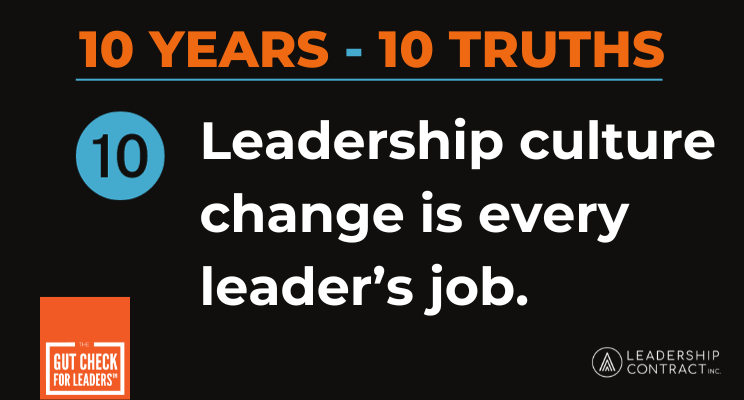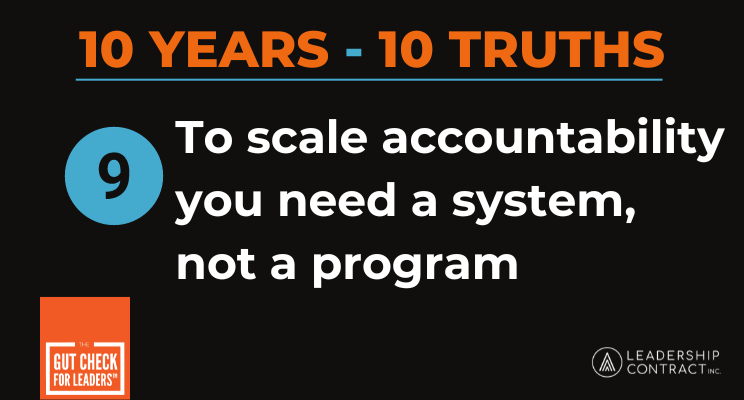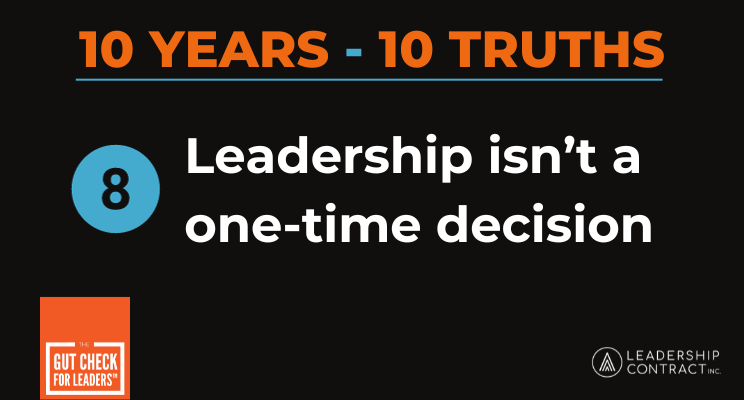Note: A version of this was previously published on Forbes.
“Let’s talk.”
Two simple words can—in the right circumstances—lead to some critical conversations, particularly regarding business leadership accountability.
Throughout my career, I’ve met with senior leaders who acknowledge shortcomings in their leadership culture but never seem to get around to doing anything about it. That has undoubtedly been my research’s central finding: Organizations admit a lack of accountability but have no plan to improve the situation. Through my work, I’ve tried to give senior leaders that much-needed pathway to accountability.
And not just the principles of accountability. Talking about being more accountable is, in the end, very easy. I’ve tried to show people how to go from unaccountable to accountable. And in many instances, that journey begins with a frank conversation.
In my last article shared in Forbes, I discussed the importance of conducting a leadership accountability audit. This involves a questionnaire that every leader in your organization fills out. The results will show you how accountable your leaders are right now, whether the organization is setting the right expectations and whether it tolerates bad behavior and substandard performance from leaders.
The audit results provide valuable insight into your organization’s current state of leadership accountability. However, on their own, the results are meaningless unless you are prepared to act. This is where a strategic leadership conversation comes in.
How To Kick Off A Meaningful Exchange
Once the audit results have been aggregated and organized, it’s time to talk about what they mean and what you’re prepared to do about them. When working directly with senior leaders on this process, I typically suggest the following structure for the strategic conversation.
Introductions And Context Setting (5 Minutes)
Begin by explaining why there is a need for this discussion and how it connects to existing strategic priorities. No matter what kind of challenge your organization faces—digital transformation, merger or acquisition, talent shortage, major expansion—emphasize that accountable leadership is critical to achieving success.
Data Review From The Leadership Accountability Audit (20 Minutes)
The audit results may prove startling to some of the people on your senior leadership team, particularly comments recorded in open-ended questions. Nobody likes to be confronted with evidence of leadership accountability gaps. However, to fix a problem, you have to acknowledge that you have a problem. That’s what an audit will help you do.
Facilitated Discussion (50 Minutes)
This is the opportunity for everyone to engage on the issue and ask and answer some tough questions. I typically suggest questions like:
- Based on the audit data, do we have the leadership culture in place that will ensure our future success?
- To what extent are our leaders fully committed to their roles and responsibilities? Are they prepared to step up and do what is necessary?
- Where is leadership accountability strong in the organization? This is where you can explore accountability by level: front-line, mid-level and executive ranks.
- Working again by level, where is leadership accountability weak? How might this create risk in delivering our strategic objectives?
- Are we, as an organization, confronting mediocre and unaccountable leaders quickly and effectively? Or do we tolerate, and therefore condone, leaders who misbehave and are incompetent?
- What recommendations do you have to strengthen leadership accountability across the organization?
- How will we measure the impact of our responses? In other words, how will we know when we have strong leadership accountability in place across the organization?
Implications And Next Steps (15 Minutes)
The remaining time in your strategic conversation should be focused on developing an action plan to address accountability deficits. It has been my experience that this process will spark a robust and meaningful dialogue full of much-needed and healthy debate. But, of course, it will not be pleasant for some of those involved; I’ve found weak performance down the leadership hierarchy often speaks to shortcomings in the support and development provided by senior leaders.
However, if I’ve learned anything in my time advising senior leaders, it’s that no organization can build leadership accountability by passing the buck; everyone needs to accept their role in the problem and the solution.
You may also find it worthwhile to repeat the leadership accountability audit every 12 to 18 months to gauge your progress in improving leadership accountability.
More Leadership Resources
We have many resources to help you become the most accountable leader you can be, develop accountable leaders on your team, and scale leadership accountability across your organization.
Signup for our monthly newsletter with the latest Gut Check for Leaders, Lead the Future Podcast, and other important leadership accountability news.





